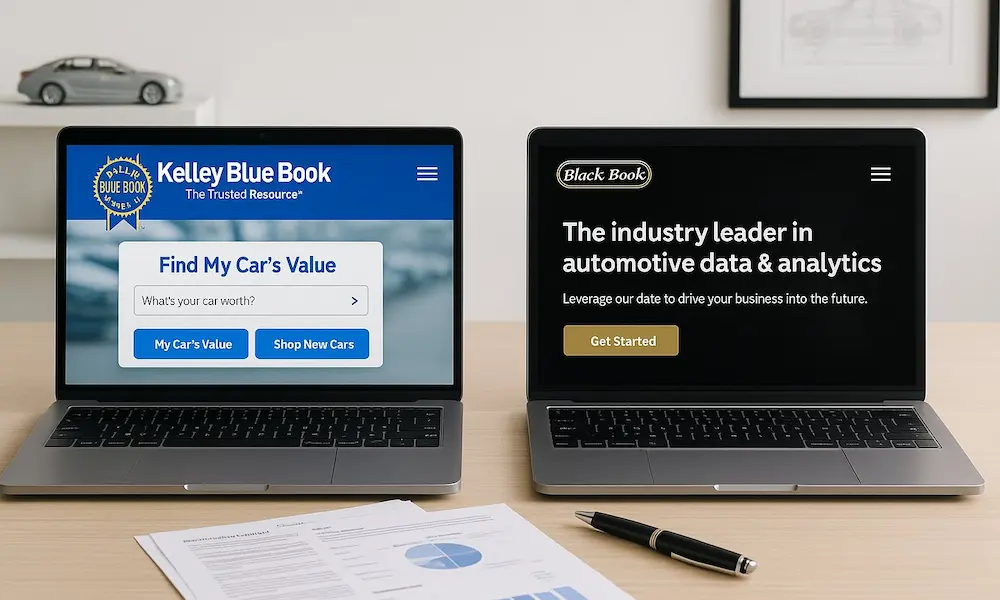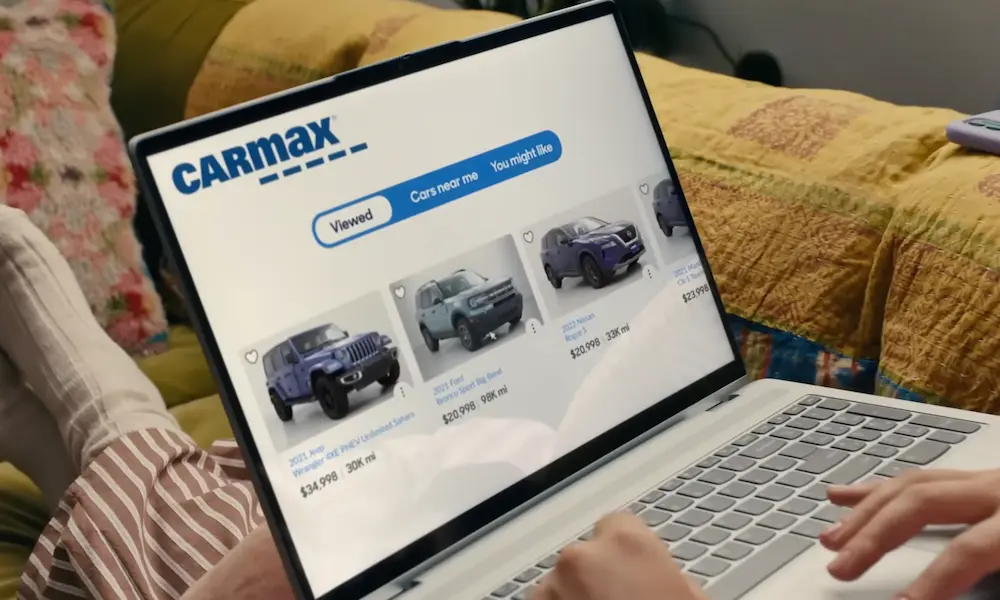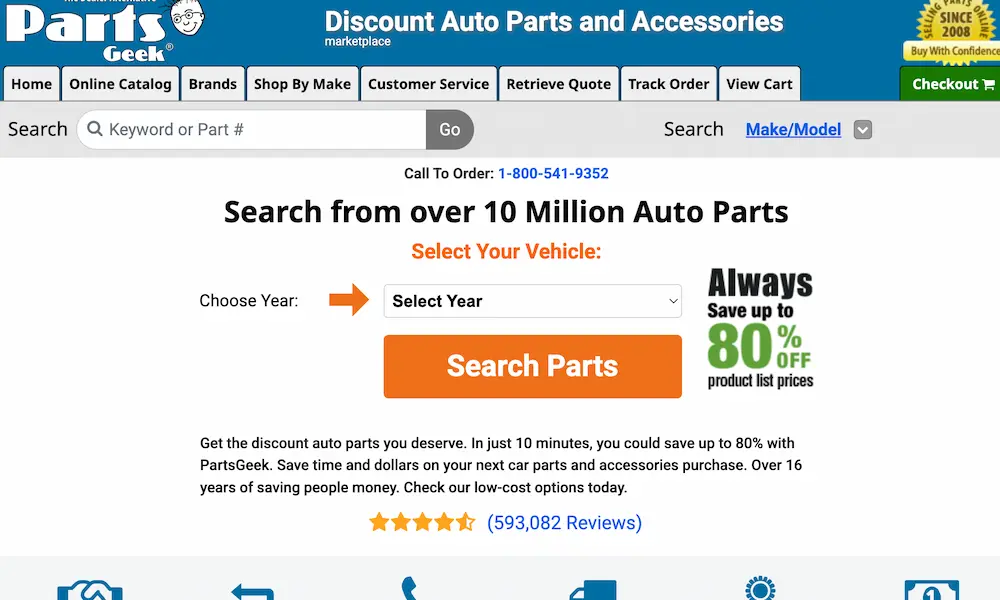Buying a car out of state can seem tricky, especially when it’s in Texas. You must pay several fees including a vehicle inspection fee and a 6.25% sales tax. Understanding these steps ensures a smooth car buying experience whether you’re dealing with a dealer or a private seller.
We understand your worries about the complexities involved in buying a car from a different state, but don’t worry. Our guide will make it easier by breaking down the essential steps and providing useful tips tailored for you.
Out-of-State Purchase Process
Buying a car from out of state requires careful planning and attention to details like finding reliable sellers, checking the car’s history, and negotiating the best price. Here’s a closer look at each step involved in the purchase.
Finding the Right Car Out of State
Start by identifying the type of car you want. Use resources like Kelley Blue Book to check the market value of the vehicle you’re interested in. Look for listings on trusted websites and read reviews about the car’s performance and reliability.
Make sure to check the vehicle history using tools like Carfax. This will help you understand if the car has been in any accidents, has had multiple owners, or has any outstanding recalls.
Consider the total cost, including taxes, registration, and potential shipping fees, before making your decision.
Contacting Dealers or Private Sellers
Once you find a car that meets your needs, reach out to the dealer or private seller. For dealers, check their reviews and ratings to ensure they are reputable. For private sellers, ask for detailed information and additional photos of the car.
Set up a time to speak with them about the car’s condition. Verify important aspects such as the car’s mileage, maintenance history, and the reason for selling.
If you’re dealing with a private seller, consider requesting a pre-purchase inspection from a local mechanic. This can uncover any hidden issues and give you peace of mind before moving forward.
Negotiating the Purchase Price
When negotiating the purchase price, come prepared with knowledge about the car’s market value. Use the information from Kelley Blue Book to support your case.
Don’t be afraid to make a lower offer, especially if you find any issues during the vehicle history review or inspection. Discuss potential repairs needed and how they should affect the price.
If the car is at a dealership, see if they have any promotions or offers that can help lower the cost. Remember, negotiating is about finding a fair price that works for both parties. Be respectful and clear about your budget limits.
Inspections and Verifications
When you buy a car in Texas from out of state, several inspections and verifications are crucial. These ensure your vehicle meets Texas standards and is safe for the road. Below are key areas you need to focus on.
Vehicle Identification Number (VIN) Checks
You must get a Vehicle Identification Number (VIN) check. This ensures that the VIN on the vehicle matches its documents. To do this, visit a Texas Department of Motor Vehicles (TxDMV) office or an authorized inspection station.
During the VIN check, inspectors verify the VIN against records to ensure the car is not stolen or has been salvaged. This step is necessary for registration and titling. Title application fees vary by county, either $28 or $33.
Getting a VIN check helps avoid legal complications, ensuring your vehicle can be legally driven in Texas.
Emissions and Safety Inspection
In Texas, you must pass an emissions and safety inspection to register your vehicle. This is essential to meet emissions standards and confirm the car’s overall safety.
For emissions testing, inspectors measure pollutants from your vehicle. You must pass within 90 days before registering your car. If your car is a commercial vehicle, it needs annual inspections. There is no grace period.
The safety inspection involves checking brakes, lights, tires, and seatbelts. Fees vary by county but generally include a state inspection fee up to $30.75 and local fees up to $31.50.
Passing this inspection is crucial for both environmental reasons and your safety on the road.
Obtaining a Vehicle History Report
Before finalizing your out-of-state car purchase, get a vehicle history report. This report includes accident histories, title information, and odometer readings. It helps verify if the car has been in any major accidents or undergone significant repairs.
To obtain this report, use services like Carfax or AutoCheck. These platforms compile data from various sources like insurance companies and police reports.
Having a detailed vehicle history report can help you make an informed decision and avoid buying a problematic car. This step adds a layer of security, ensuring that the vehicle’s past will not affect your future on the road.
Tax, Titling, and Registration Steps
When buying a car in Texas from out of state, you need to handle several key steps such as calculating the sales tax, applying for a title, and registering the vehicle. Each of these steps involves specific forms and fees that you must complete and pay.
Calculating Sales Tax and Fees
To calculate your vehicle sales tax, multiply the purchase price by the state’s sales tax rate of 6.25%. For example, if you bought the car for $20,000, you would pay $1,250 in state sales tax. Besides the sales tax, you will also need to pay other fees. The registration fee for passenger vehicles and light trucks is a base fee of $50.75. Depending on your county, you might also face local county fees of up to $31.50.
An essential piece of paperwork is the Application for Texas Title and/or Registration (Form 130-U), which you need to complete and submit with your payment.
Title Application and Transfer
Applying for a vehicle title in Texas from out of state requires some important documents. You need the out-of-state title signed and dated by both the buyer and the seller. Additionally, you must complete and sign the Application for Texas Title and/or Registration (Form 130-U). You might also need a bill of sale, proof of insurance, and an acceptable ID.
A vehicle inspection report from the last 90 days is required. The title application fee usually ranges between $28 and $33, depending on your county.
Vehicle Registration in Texas
Registering your vehicle in Texas involves a few more steps and some additional fees. First, ensure that your vehicle passes a state vehicle inspection. You must register the car within 30 days of moving to Texas or purchasing it to avoid penalties. The late registration penalty is $25 for each month overdue, up to a maximum of $250.
Submit your completed Form 130-U, along with the inspection report and proof of insurance, to your local county tax office. This ensures that your car is legally registered and you can get your new Texas license plates. Be aware that the state portion of the vehicle inspection fee can cost up to $30.75.
Finalizing Your Out-of-State Car Purchase
To finalize your out-of-state car purchase, you’ll need to secure car insurance, complete the required paperwork, and handle the shipping or transportation of your new vehicle. Each step is crucial to ensure a smooth and legal transition of ownership.
Securing Car Insurance
Before driving your new car, make sure you have car insurance. Most states, including Texas, require proof of insurance before you can register the vehicle. Start by contacting your current auto insurance provider to add the new car to your policy.
If buying from an out-of-state seller, you may need to provide a bill of sale and VIN number to your insurer. Once you have proof of insurance, keep a copy in your vehicle and provide one to the DMV when registering.
Completing Required Paperwork
Completing the necessary paperwork is essential for legal ownership. You’ll need the Application for Texas Title and/or Registration (Form 130-U), which can be found on the TxDMV website.
Other important documents include the bill of sale, odometer reading, and proof of insurance. Fees to register an out-of-state vehicle include a base registration fee of $50.75 for passenger vehicles, a title application fee between $28 and $33, a state vehicle inspection fee up to $30.75, and local county fees up to $31.50. You will also need to pay a 6.25% vehicle sales tax.
Handling Shipping or Transportation
Getting your car to Texas might require shipping or you might choose to drive it yourself. If you opt for shipping, consider the destination fee as part of your total cost. Contact several shippers to get quotes and verify their credentials.
For those driving their new car to Texas, you need a temporary registration from the seller’s state. This allows you to operate the vehicle legally until it is registered in Texas. Either way, ensure your new ride arrives safely and securely.
By following these steps, you’ll make sure your purchase is complete and compliant with Texas laws.
After Purchase Considerations
After buying a car in Texas from another state, you need to handle some essential post-purchase steps. This involves getting your title and plates, and being aware of your responsibilities as the new owner.
Receiving the Title and Plates
Once you have bought the car, you need to get a Texas title and license plates. You’ll need to fill out the Application for Texas Title and/or Registration (Form 130-U). There are various fees involved, including a title application fee which is between $28 and $33 depending on the county.
Additionally, you’ll have to pay the registration fee, which is $50.75 for passenger vehicles and light trucks. There is also a state inspection fee of up to $30.75, and local county fees that may add up to $31.50. Make sure the vehicle passes the required inspections before finalizing these steps.
Understanding Owner Responsibilities
Owning a car in Texas means you have certain obligations. You are responsible for getting a registration sticker and keeping it up to date. This includes renewing your registration annually to avoid penalties. Make sure you also transfer the title to your name and pay any required fees.
If you have a lienholder, they must be listed on the title. Keep an eye on inspection dates to ensure your vehicle stays road-legal. Additionally, you need to dispose of old license plates if they aren’t being transferred, often by defacing them to prevent misuse. This careful attention to detail helps you avoid any legal issues and keep your car in compliance with Texas laws.














